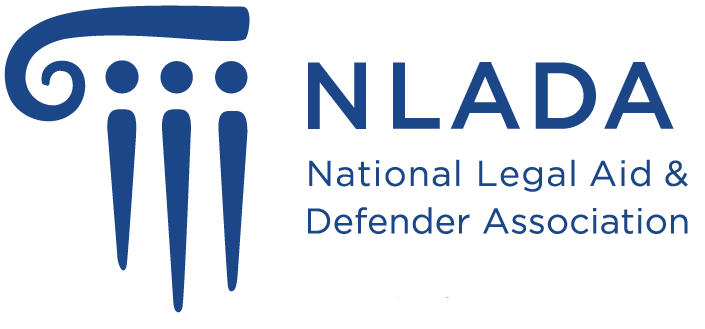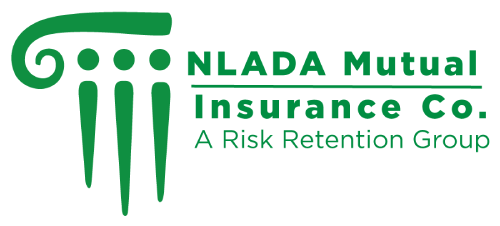Introduction to the 1989 Edition:
The National Legal Aid and Defender Association (NLADA) is a private, nonprofit, national membership organization dedicated to the provision of quality legal services to poor people in both criminal and civil cases.
Since 1911, NLADA has worked to ensure that poor people have the same access to quality legal services as those who can afford to retain counsel, and since 1958 has specifically included poor persons accused of crime in that goal. Yet, access to quality legal assistance is still denied to many persons in our criminal justice system. While governments have a constitutional duty to provide counsel to poor persons charged with criminal offenses, the poor frequently receive inadequate representation from their government-supplied lawyers. In other words, there are two systems of justice: one for the poor and one for those who can afford to hire counsel.
Assigned counsel – that is, private attorneys appointed in individual cases – is the primary method for delivery of defense services in about 50% of the counties in the United States. Defense services are also provided through defender offices and contracts with law firms or private organizations. While there are national standards governing the delivery of defense services by defender offices and contract systems, the only standards for assigned counsel systems are those contained in general defense services standards or employed in a few local jurisdictions. In most assigned counsel jurisdictions, the absence of standards has resulted in an absence of structure, quality control, training and support services. In fact, some assigned counsel “systems” amount to no more than an ad hoc assignment of attorneys by individual judges.
It is to remedy these deficiencies – and thereby improve the quality of representation provided by assigned counsel – that NLADA is promulgating these Standards.
These Standards represent what NLADA believes to be the ideal system for providing representation through assigned counsel. While financial, administrative and other considerations may prevent some jurisdictions using assigned counsel from immediately achieving this ideal, the Standards provide a model for improving representation of those who cannot afford to retain private counsel, and a goal that assigned counsel systems should work to achieve.
The "black letter" text of these standards is available here for free. NLADA members have access to the full versions of standards, including commentary, related standards, and legal sources. Printed versions of standards are also available in our store.
View All Commentary Printed Standards
More Indigent Defense Standards
Section 1: Scope
Standard 1 Scope
Section 2: Policies
Standard 2.1 Provision of Quality Representation
Standard 2.2 Independence from Judiciary and Funding Source
Standard 2.3 Financial Eligibility
Standard 2.4 Contribution and Recoupment
Standard 2.5 Early Representation
Standard 2.6 Duration and Continuity of Representation
Standard 2.7 Waiver Safeguards
Standard 2.8 Standby Counsel
Standard 2.9 Standards for Performance of Counsel
Section 3: Structure
Standard 3.1 Establishment of Legal Representation Plan
Standard 3.1.A Assigned Counsel in All Eligible Cases
Standard 3.1.B Mixed Delivery System Including Assigned Counsel
Standard 3.1.C Assigned Counsel for Conflicts Only
Standard 3.2.1 Creation of Board
Standard 3.2.2 Functions of Board
Standard 3.3.1 Position of Administrator
Standard 3.3.2 Qualifications of Administrator
Standard 3.3.3 Employment Status and Pay of Administrator
Standard 3.3.4 Functions of Administrator
Standard 3.4 Budget and Funding
Standard 3.5.1 Insurance for Board and Administrators
Standard 3.5.2 Insurance for Program Attorneys
Standard 3.6 Office Space, Equipment, Supplies
Section 4: Responsibilities
Standard 4.1 Establishment and General Operation of Assigned Counsel Roster
Standard 4.1.1 Qualifications of Attorneys
Standard 4.1.2 Workloads of Attorneys
Standard 4.1.3 Publicizing the Program
Standard 4.2 Orientation
Standard 4.3.1 Entry-Level Training
Standard 4.3.2 In-Service Training
Standard 4.4 Supervision of Attorneys
Standard 4.4.1 Mentoring
Standard 4.4.2 Monitoring
Standard 4.5 Disciplinary Policies and Procedures
Standard 4.5.1 Penalties Less than Removal
Standard 4.5.2 Removal from Program Roster(s)
Standard 4.5.3 Reinstatement After Removal
Standard 4.6 Support Services
Standard 4.7.1 Assigned Counsel Fees
Standard 4.7.2 Method of Compensation
Standard 4.7.3 Payment of Expenses
Standard 4.7.4 Only Authorized Compensation

